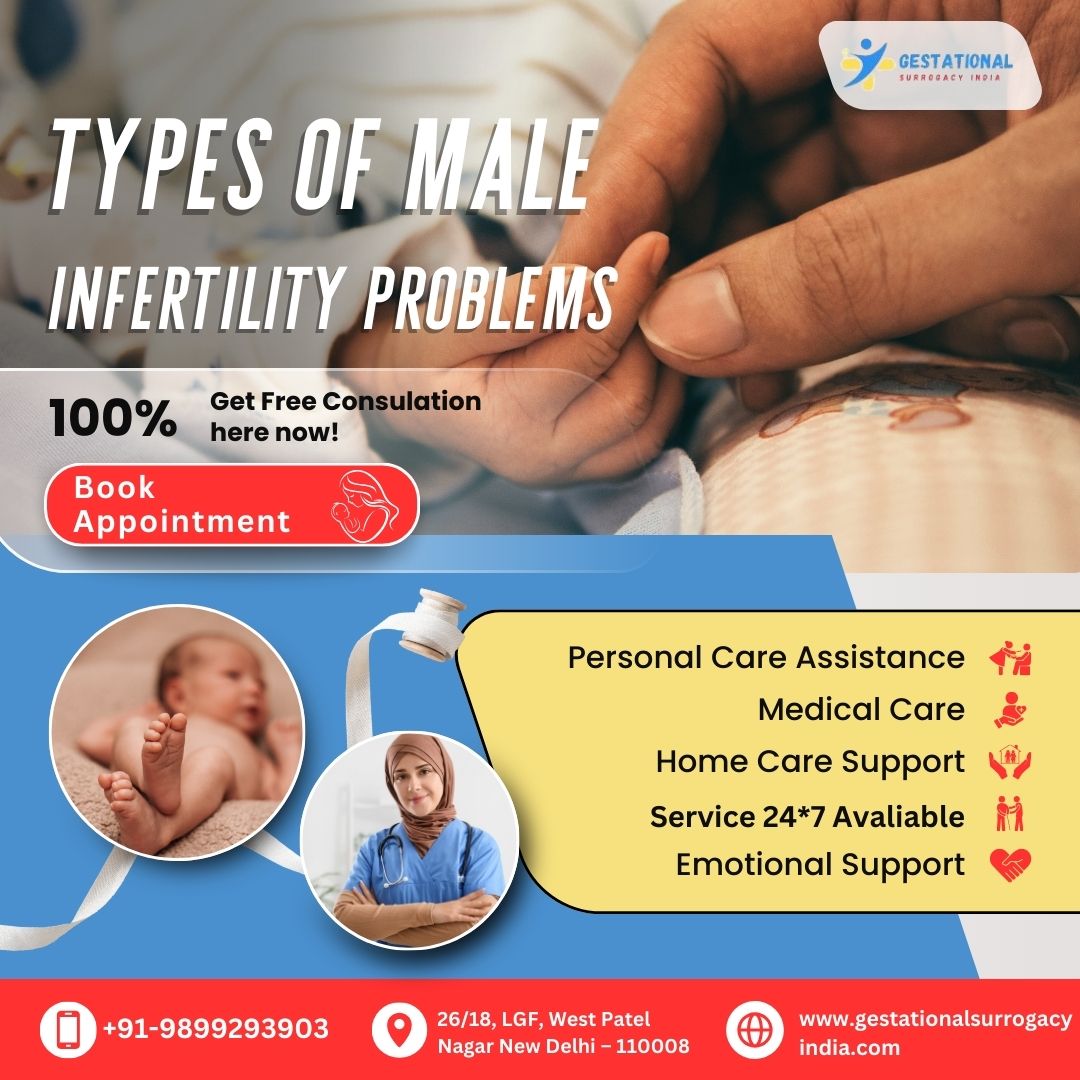Male infertility is a common issue affecting couples trying to conceive. Approximately 40–50% of infertility cases are attributed to male factors. There are various causes behind male infertility, and understanding these issues can help address them effectively. In this article, we will explore the types of male infertility problems and the ways in which they impact fertility.
1. Low Sperm Count (Oligospermia)
Low sperm count, also known as oligospermia, is one of the most common causes of male infertility. It occurs when the semen contains fewer sperm cells than the optimal amount required for fertilization. A normal sperm count should be at least 15 million sperm per milliliter. Various factors, such as hormonal imbalances, genetic disorders, or exposure to heat, toxins, and certain medications, can lead to low sperm count.
2. Poor Sperm Motility (Asthenospermia)
Sperm motility refers to the ability of sperm to move efficiently through the female reproductive tract to reach the egg. Poor sperm motility, or asthenospermia, hinders the chances of successful fertilization, as sperm cannot swim effectively. Causes of poor motility include infections, varicocele, smoking, excessive alcohol consumption, and exposure to chemicals.
3. Abnormal Sperm Shape (Teratospermia)
The shape and structure of sperm are crucial for successful conception. Abnormally shaped sperm, a condition known as teratospermia, may struggle to fertilize an egg due to structural issues. The abnormality could be related to the sperm head, tail, or overall size, reducing the sperm’s ability to penetrate and fertilize the egg. Lifestyle factors and genetics often play a role in teratospermia.
4. Varicocele
Varicocele is a condition characterized by the swelling of veins within the scrotum, similar to varicose veins in the legs. It can lead to decreased sperm quality and count due to increased temperature in the testes, which negatively affects sperm production. Varicocele is treatable, and in some cases, surgical correction can improve fertility outcomes.
5. Hormonal Imbalances
Hormones such as testosterone, follicle-stimulating hormone (FSH), and luteinizing hormone (LH) regulate sperm production. Imbalances in these hormones, due to factors like obesity, stress, and underlying health conditions, can reduce sperm count, motility, and quality. Hormonal treatments may help restore balance and improve fertility.

Types of Male Infertility Problems
Contact Us:
Phone: +91–9899293903
Email: [email protected]
6. Ejaculation Disorders
Ejaculation issues can also contribute to male infertility. Retrograde ejaculation occurs when semen enters the bladder instead of being expelled from the penis. Other disorders, such as premature or delayed ejaculation, can also hinder the chances of conception. These conditions may arise from nerve damage, diabetes, or surgeries, but can often be treated with medications or therapy.
7. Genetic Disorders
Certain genetic conditions, such as Klinefelter syndrome, Y chromosome microdeletions, or cystic fibrosis, can lead to male infertility by impairing sperm production or function. Genetic testing is often recommended for men with no other identifiable cause of infertility, as some of these conditions are inherited.
8. Lifestyle Factors
Unhealthy lifestyle habits such as smoking, excessive alcohol intake, drug abuse, obesity, and exposure to environmental toxins can negatively impact sperm health. Making positive lifestyle changes like improving diet, exercising, and reducing stress can significantly enhance fertility in some cases.
Conclusion
Understanding the different types of male infertility problems is the first step towards addressing them. From low sperm count to genetic disorders, each condition requires targeted treatment for the best chance of successful conception. If you or your partner are experiencing fertility challenges, it’s essential to consult a specialist to determine the root cause and explore treatment options, such as those offered through Gestational Surrogacy India.
Contact Us:
Phone: +91–9899293903
Email: [email protected]





Comments